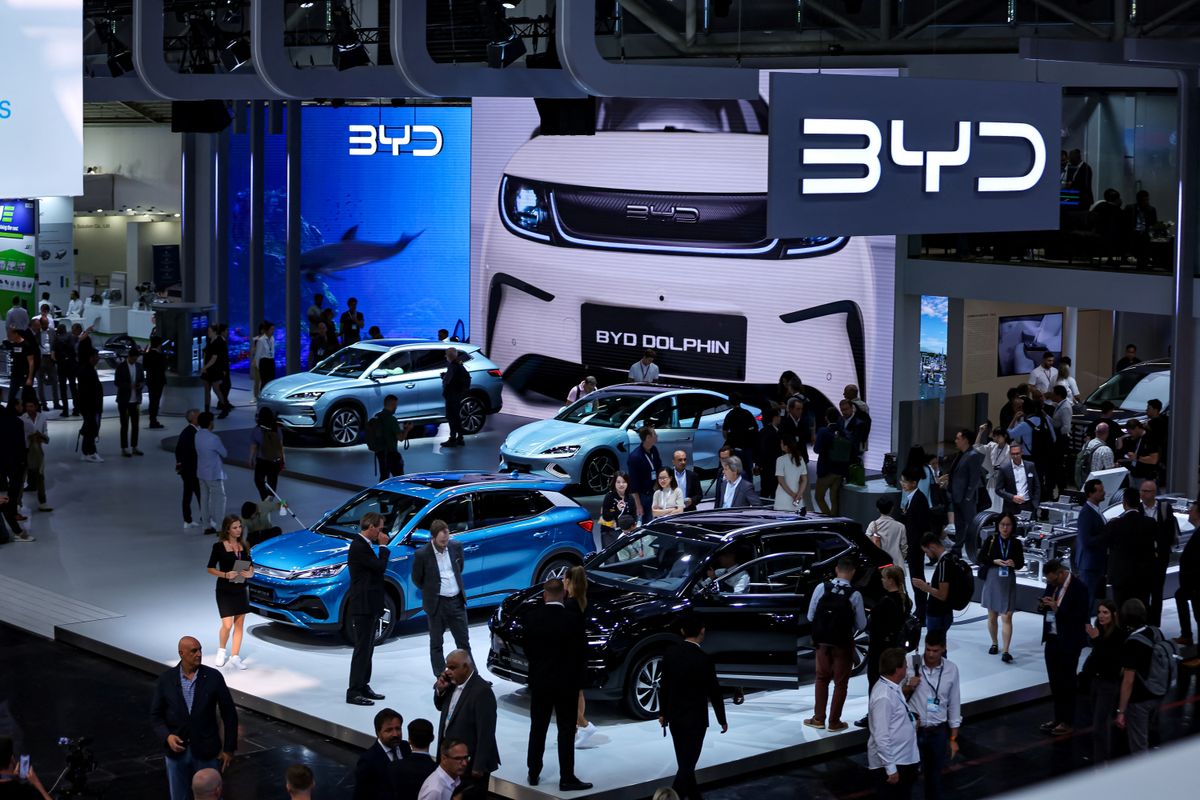Chinese EV brands show off at a major international auto show in Germany
On Monday, one of the world’s biggest car shows, the IAA Mobility, opened in Munich, and it’s clear that EVs are dominating the focus.

A few minutes every morning is all you need.
Stay up to date on the world's Headlines and Human Stories. It's fun, it's factual, it's fluff-free.
The backstory: The race to make more efficient and affordable electric vehicles (EVs) has been heating up over the past decade. While Tesla is still in the lead as far as EV manufacturing and sales go, its growth is starting to slow down just as Chinese EV manufacturers see sped-up growth. This makes sense – China is the world’s largest market for EVs and cars in general. According to Counterpoint Research in Hong Kong, about a quarter of passenger vehicles sold in China in 2022 were either EVs or hybrid vehicles.
While the main price concerns with EVs have to do with their expensive batteries, China is the world leader in making EV batteries, which it can do at a lower cost than others. It leads the supply chain and has easier access to raw battery materials like lithium and cobalt. Chinese company BYD is the nation’s industry leader at the moment, but competition is fierce. BYD is reported to have sold 128,196 EV passenger cars in June, up 84% from the same time last year.
The development: On Monday, one of the world’s biggest car shows, the IAA Mobility, opened in Munich, Germany, and it’s already clear that EVs are dominating the focus of this event. Tesla is ready to make its mark, expected to reveal a new version of its mass-market Model 3. But Chinese EV-makers like BYD are looking to really start expanding in the world EV market, using this show as the chance to win over Europe.
About 41% of the companies participating in this year’s IAA show are based in Asia. European carmakers are seeing how Chinese manufacturers are able to make EVs at a lower price, making their vehicles more consumer-friendly. According to researchers at Jato Dynamics, in the first half of 2022, the average EV in China cost less than €32,000 (US$34,500) compared to about €56,000 (US$60,000) in Europe. So far in 2023, Chinese carmakers reportedly saw their European sales make up 8% of the EV market there, which is up from 6% last year and 4% in 2021.
Key comments:
“I believe the time has come for Chinese brands,” BYD chairman Wang Chuanfu said at a BYD event earlier this year. “It’s an emotional need for the 1.4 billion Chinese people to see a Chinese brand becoming global.”
"The electric car market with its many new players will be divvied up over the next few years and people want to know: who is offering what?" said Jan Burgard from the Berylls automotive consulting group to the Handelsblatt financial daily.
"The more electric cars we have, the more we can benefit from economies of scale," Volkswagen CEO Oliver Blume said, “impressed” by China’s progress in EV tech and manufacturing.




Comments ()